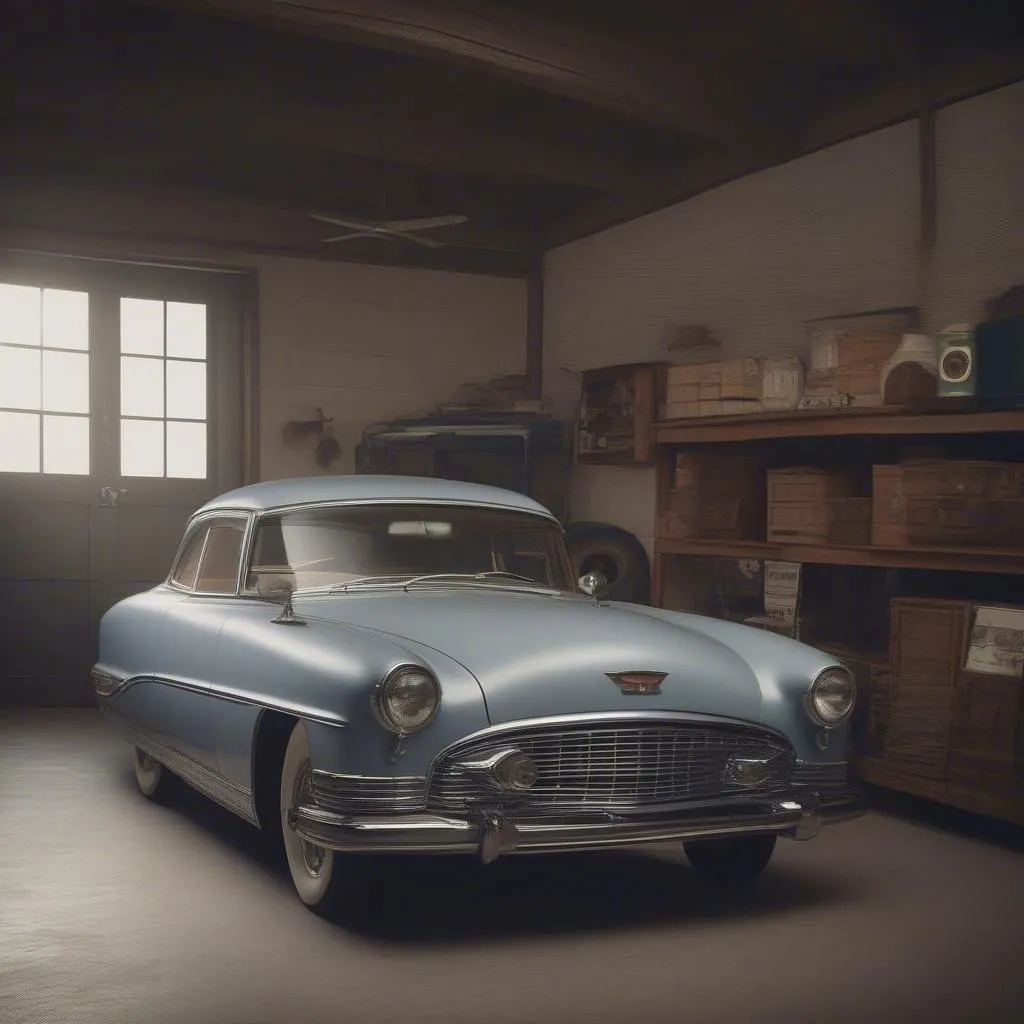Have you ever dreamed of owning a classic car? The sleek lines, the roaring engine, the feeling of nostalgia… there’s something truly special about vintage cars. But before you take the plunge, there’s one important factor to consider: vintage car insurance. It’s different from regular car insurance, and understanding the nuances is crucial. Let’s dive in!
Why is vintage car insurance different?
From a mechanic’s perspective, vintage cars are like a time capsule. They have unique parts, often hard to find and require specialized knowledge to repair. The electrical system, for example, is simpler than modern cars, but it also needs a specific approach. The diagnostics tools we use for European cars, like the Dealer Scanner, are pretty much useless on these vehicles. You need a good mechanic who understands vintage cars.
From an insurance perspective, vintage cars present unique challenges. Their value can fluctuate greatly, depending on the model, condition, and even the color! Imagine the cost of replacing a rare 1960s Ford Mustang, especially if it’s a collector’s item.
Vintage car insurance explained
So, what’s the deal with vintage car insurance? Here’s the breakdown:
Types of vintage car insurance
There are several types of vintage car insurance policies, each tailored to specific needs:
-
Agreed Value: This is the most common type for vintage cars. You and your insurer agree on a specific value for your car. If it’s totaled, you receive that agreed value, regardless of the market price at the time.
-
Stated Value: Similar to agreed value, but often used for cars that are difficult to value objectively, like race cars or highly customized vehicles.
-
Replacement Value: This policy covers the cost of replacing your vintage car with a similar vehicle, including any necessary repairs to make it identical.
Factors affecting vintage car insurance cost
Here are some key factors that affect your premium:
-
Year, make, and model of your car: Rarer and more valuable cars generally cost more to insure.
-
Your driving record: A clean driving record can lower your premium.
-
Where you live: Insurance costs vary depending on your state or region.
-
Usage: How often you drive your vintage car, and for what purpose, can influence your premium.
-
Storage: If you store your car in a garage, it’s generally cheaper to insure than if it’s parked outside.
-
Modifications: Any modifications, especially performance upgrades, can affect your premium.
Finding the right vintage car insurance
Here are some tips for finding the right vintage car insurance:
-
Shop around: Compare quotes from different insurers specializing in vintage car insurance.
-
Consider your needs: Choose a policy that meets your specific needs and budget.
-
Read the fine print: Understand the coverage, terms, and conditions of each policy.
Frequently asked questions
Q: How much will vintage car insurance cost?
A: The cost depends on many factors, so it’s impossible to give a precise number. However, it’s generally more expensive than regular car insurance.
Q: What if I need to have my vintage car repaired?
A: Your insurer will provide you with a list of approved repair shops specializing in vintage cars.
Q: Can I drive my vintage car to classic car shows?
A: Most vintage car insurance policies cover you for driving to and from events, including classic car shows.
Q: What happens if my vintage car is stolen?
A: Depending on your policy, you’ll be compensated for the loss of your car, either based on agreed value, stated value, or replacement value.
Q: Can I drive my vintage car daily?
A: You can, but your premium will be higher. Some insurers offer discounts for low mileage usage.
Q: What if I want to sell my vintage car?
A: Your policy might have provisions for covering the sale of your car. Consult your insurer for specific details.
Beyond the Insurance: Protecting Your Vintage Car
Vintage car insurance is just one aspect of protecting your prized possession. Here are a few additional tips:
- Regular maintenance: This is crucial for keeping your car in top condition and extending its lifespan.
- Proper storage: Store your car in a dry, secure environment to prevent damage.
- Invest in security: Install an alarm system or GPS tracker to deter theft.
Your Journey Begins Here:
Owning a vintage car can be a rewarding experience. Understanding vintage car insurance is an essential step on your journey. At DiagXCar, we’re passionate about classic cars and are here to help you navigate this process.
 Vintage car insurance
Vintage car insurance
If you have more questions about vintage car insurance or need assistance with the diagnostic tools for European cars, don’t hesitate to reach out! Our experts are here 24/7 to help you on your classic car journey. Connect with us on WhatsApp: +84767531508.
Ready to take the next step? Explore our resources on classic car dealers, shipping a car, and car delivery services!


